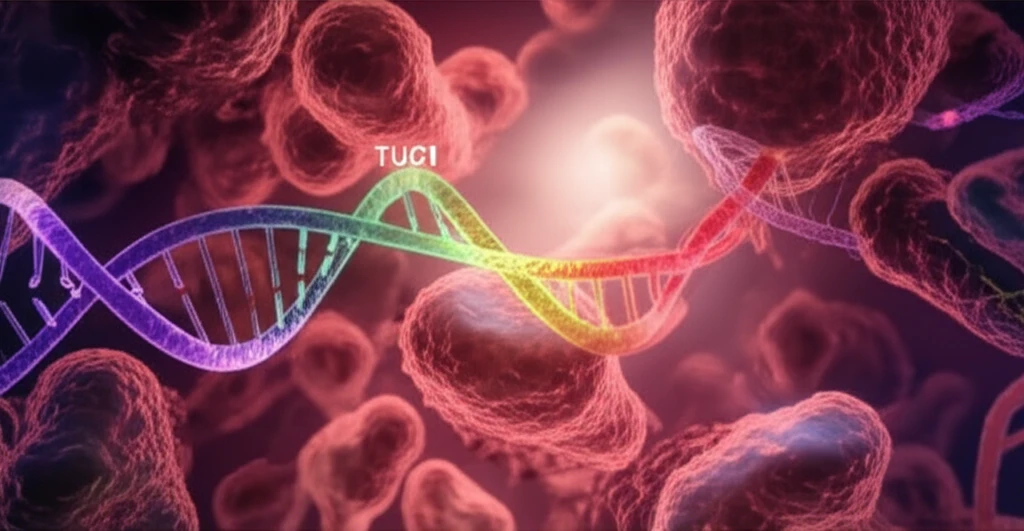
Decoding TUG1: How This Tiny RNA Holds the Key to Colon Cancer Progression
"New research reveals the critical role of TUG1, a long non-coding RNA, in promoting colon cancer. Discover how understanding TUG1 could lead to new treatments and save lives."
Colon cancer is a major global health challenge, affecting millions worldwide. Despite advances in treatment, it remains a leading cause of cancer-related deaths. This underscores the urgent need to understand the intricate mechanisms that fuel its progression and identify new therapeutic targets.
In recent years, long noncoding RNAs (lncRNAs) have emerged as critical players in various biological processes, including cancer development. These molecules, although not directly involved in protein production, exert significant influence on gene expression and cellular behavior. One such lncRNA, taurine-upregulated gene 1 (TUG1), has garnered attention for its potential role in tumorigenesis.
A groundbreaking study published in 'Medical Science Monitor' sheds light on the role of TUG1 in colon cancer. Researchers Hui-yuan Zhai, Ming-hua Sui, and colleagues delved into the biological mechanisms of TUG1, revealing its involvement in promoting colon cancer cell growth and spread. Their findings open new avenues for targeted therapies, offering hope for more effective treatments.
TUG1: The Culprit Behind Colon Cancer's Spread?

The study's core finding revolves around the observation that TUG1 is significantly more abundant in colon cancer tissues compared to normal tissues. This immediately suggests that TUG1 might be acting as an oncogene, a gene that promotes cancer development when it is overexpressed. To confirm this, the researchers investigated the effects of manipulating TUG1 levels in colon cancer cells.
- TUG1 Overexpression: TUG1 levels were significantly higher in colon cancer tissues compared to adjacent normal tissues.
- p63 Downregulation: The expression of p63 was lower in tumor tissues.
- Inverse Relationship: Silencing p63 in colon cancer cells (HCT-116 and LoVo) led to a significant increase in TUG1 expression.
- Cell Proliferation: Reducing TUG1 levels inhibited cell proliferation.
- Apoptosis: Lowering TUG1 promoted cancer cell death (apoptosis).
- Cell Migration: Inhibiting TUG1 reduced the ability of cancer cells to migrate.
Hope for Future Colon Cancer Treatments
The discovery of TUG1's role in colon cancer opens up exciting possibilities for future treatments. By targeting TUG1, scientists might be able to develop therapies that specifically disrupt cancer cell growth and prevent metastasis. This could lead to more effective and less toxic treatments for colon cancer patients. Further research is needed to fully understand the intricacies of TUG1 regulation and to develop effective strategies for targeting it therapeutically. However, this study represents a significant step forward in our understanding of colon cancer and offers a beacon of hope for future treatments.
